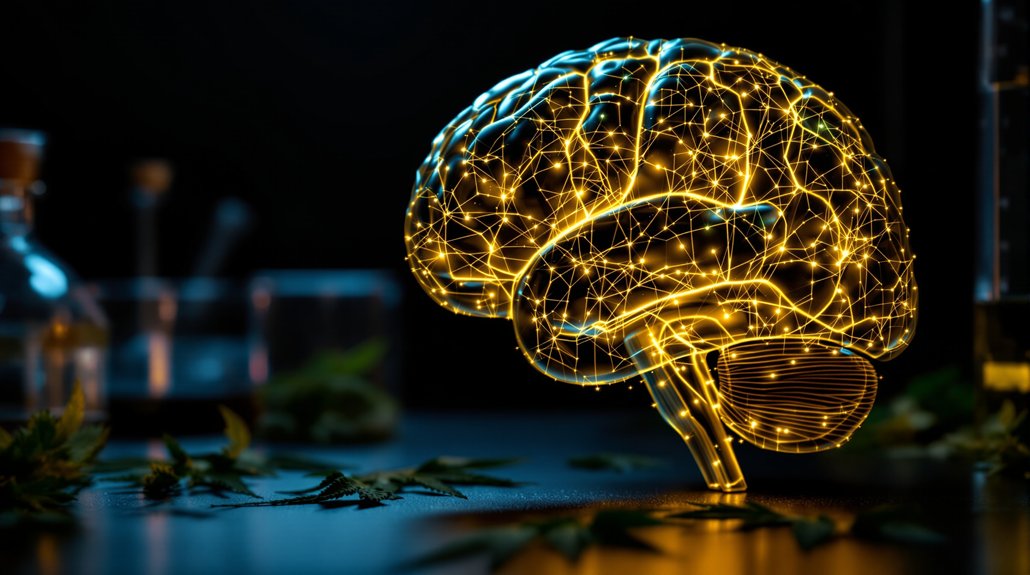How might cannabis use affect cognitive function in aging adults? New federal research suggests the relationship may be surprisingly positive, with large-scale studies revealing that older cannabis users consistently outperform non-users on cognitive assessments across multiple brain domains.
The findings challenge conventional assumptions about cannabis and cognition. Federal researchers analyzing data from up to 37,929 participants aged 44 to 81 discovered that cannabis users demonstrated superior performance in attention, memory, processing speed, and executive function compared to their non-using counterparts. These weren’t marginal improvements either, the cognitive advantages appeared solid across diverse testing scenarios.
Cannabis users aged 44-81 consistently outperformed non-users across multiple cognitive domains, showing solid advantages in attention, memory, and executive function.
Brain imaging data provided even more persuasive evidence. Functional MRI scans revealed that cannabis users displayed brain network connectivity patterns typically associated with younger adults, particularly in subcortical-sensorimotor and cerebellar pathways. The neural activity showed what researchers termed “overlapping but inversely correlated” patterns between healthy aging and cannabis use, suggesting that cannabinoids might actively counteract age-related cognitive decline. The research examined brain functional network connectivity across more than 25,000 adults to understand how cannabis influences brain communication patterns. The analysis utilized sophisticated brain imaging technology to assess neural responses during various cognitive challenges.
One of the most striking discoveries emerged from CDC dataset analysis examining subjective cognitive decline (SCD). Recreational cannabis users showed a remarkable 96% decreased odds of experiencing SCD compared to non-users. This finding carries significant implications since SCD strongly predicts future dementia risk. In essence, cannabis users reported feeling cognitively sharper than their peers.
The research points toward potential neuroprotective mechanisms at work. Scientists theorize that cannabinoids and the body’s endocannabinoid system may decelerate neural aging processes, helping preserve cognitive function as people age. The enhanced brain connectivity resembling younger adult patterns supports theories about neural compensation and protection against age-related dedifferentiation.
However, the picture isn’t entirely rosy. Long-term cannabis use showed associations with reduced executive functioning and processing speed in some studies. Recent heavy use correlated negatively with working memory performance. These nuanced findings suggest that timing, frequency, and duration of use may considerably influence outcomes. Interestingly, the study did not distinguish between THC and THCA consumption, though the latter requires decarboxylation process to produce psychoactive effects that might influence cognitive function.
Researchers emphasize important caveats about their work. The studies reveal correlations, not causation – other lifestyle or health factors could explain the cognitive advantages observed in cannabis users. The frequency and consumption methods didn’t significantly affect SCD differences, and results represent single-year snapshots requiring longitudinal confirmation.
The methodology was robust, utilizing UK Biobank data and controlling for various confounding variables while distinguishing between recreational and medical use patterns. Still, scientists acknowledge that more thorough long-term studies are needed to fully understand how cannabis affects aging brains. The preliminary evidence, though, suggests that previous assumptions about cannabis and cognitive decline may need serious reconsideration.










